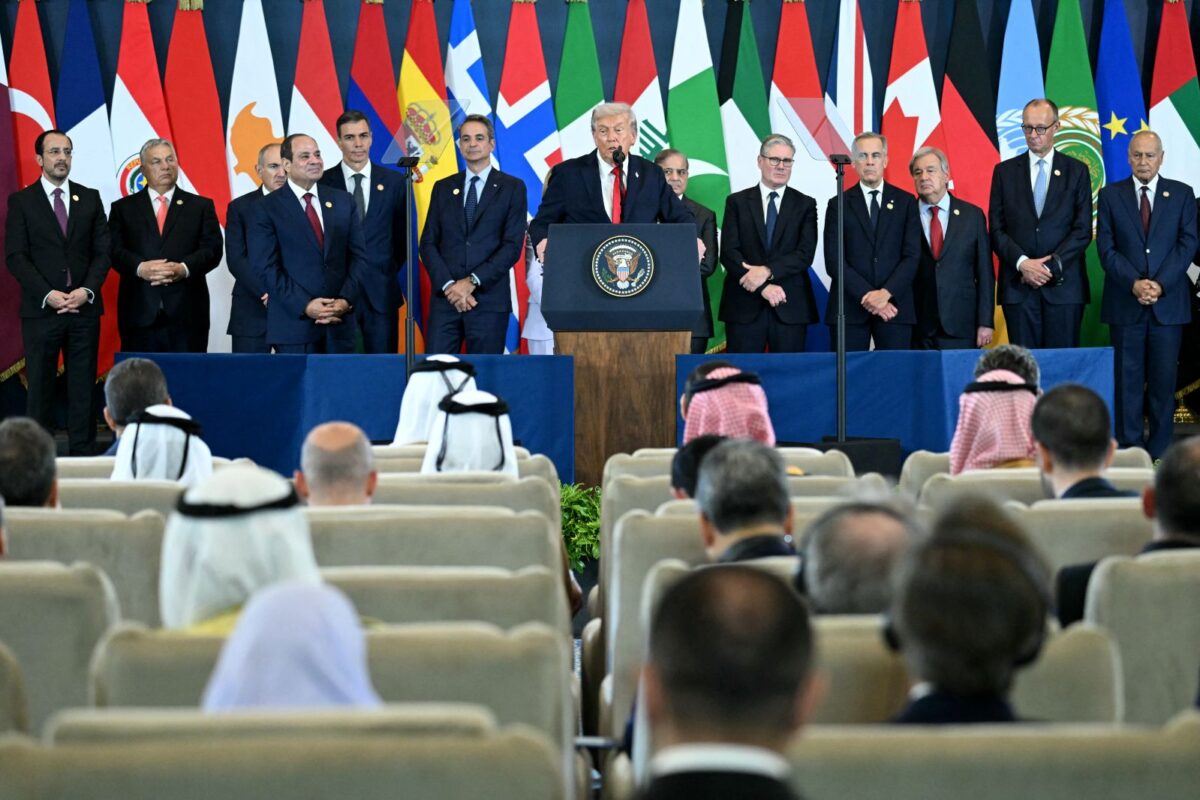
Across the region, a language of peace is returning to the diplomatic stage.
In Israel’s Knesset, Donald Trump proclaimed “the dawn of a new Middle East.” In Sharm el-Sheikh, world leaders gathered under Egyptian and American sponsorship to endorse the Gaza ceasefire and outline what comes next: reconstruction, border security, and a promise — or illusion — of regional stability. In Beirut, President Joseph Aoun, despite not being on the list of attendees, echoed the tone, saying Lebanon must be part of this new phase and that negotiations with Israel are now “necessary.”
But beneath these announcements of renewal lies a quieter, more dangerous reality.
Lebanon, instead of being pulled into a genuine peace process, risks being trapped inside a managed calm, a containment strategy designed not to resolve its crisis, but to neutralize its consequences for others.
Just one day before Trump’s speech, Hezbollah’s Scouts held a massive parade. It looked ceremonial, but it was symbolic: a demonstration that the party remains organized, embedded, and generational. A reminder that, regardless of regional declarations, its domestic power remains intact. For many outside Lebanon, this balance between diplomacy and militia control looks tolerable. For those within, it looks like déjà vu.
The emerging regional formula is not disarmament. It is coexistence under supervision. According to diplomatic briefings and regional media, the envisioned arrangement would see Hezbollah keep its weapons north of the Litani River, the Lebanese Army extend its nominal authority in the South, and Israel receive credible security guarantees under international monitoring. Washington would bless the framework as a stabilizing compromise.
On the surface, it prevents war; in practice, it cements a two-tier state. The world calls it stability. For Lebanon, it is a quiet surrender; an acknowledgment that sovereignty can be indefinitely postponed if it keeps the borders silent.
This approach follows a familiar pattern. The 2022 maritime border agreement, negotiated by Speaker Nabih Berri with Hezbollah’s backing, was celebrated as a triumph of diplomacy. Yet it was an early rehearsal of today’s logic: maintain the narrative of resistance while giving Israel, under the table, more favorable terms than a united state might have achieved through open negotiation. It was, as I argued then, an ugly version of cold peace; one that preserved the rhetoric of enmity but traded away the instruments of sovereignty.
Now that logic has gone regional. The United States and its allies, unwilling to risk another war, appear to have settled for a “second-best” Lebanon, a contained one. This suits nearly everyone but the Lebanese themselves. Israel gets security. Washington gets quiet. Hezbollah gets legitimacy disguised as pragmatism. And Lebanon gets to keep pretending that coexistence with the gun is a form of stability.
The comparison to Gaza in 2005 is unavoidable. Hamas’s control of the Strip created years of uneasy calm punctuated by destruction, a cycle of containment, not resolution. Lebanon risks a similar trajectory: calm borders and endless internal decay. What Washington once viewed as an obstacle — Hezbollah’s militarization — is being reinterpreted as a manageable reality. In the logic of great-power pragmatism, a semi-sovereign Lebanon is preferable to a collapsed one, and infinitely better than a war that could destabilize the region again.
But quiet is not peace. A Lebanon that coexists indefinitely with an armed movement cannot rebuild its state. Institutions lose purpose when the monopoly of force is shared. Citizens lose faith when the decisions of war and peace lie outside the government they elect. And sovereignty loses meaning when international actors design security frameworks that the state itself does not control.
This is the deeper tragedy of the “new Middle East.” The region may move toward negotiated calm, but Lebanon risks being frozen in time. A country pacified by external agreements yet hollowed out internally. Our allies prefer predictability to transformation; our leaders prefer paralysis to confrontation. The result is a peace that saves everyone’s interests except our own.
We long knew that change would not arrive on an Israeli tank, and that the Americans would remain pragmatic. What we failed to prepare for is ourselves: a state too fragmented to defend its own legitimacy, too weary to confront the militia that claims to defend it.
If this trajectory continues, Lebanon could drift toward a Yemen-like future; intermittent calm, chronic fragmentation, and endless external management. The guns will stay; the state will shrink. And each lull will be mistaken for progress.
Because when the guns stay, the silence that follows is not peace.
It is submission, repackaged as stability; the slow death of a state that once imagined sovereignty.
Ramzi Abou Ismail is a Political Psychologist and Senior Research Fellow at the Institute for Social Justice and Conflict Resolution at the Lebanese American University.
The views in this story reflect those of the author alone and do not necessarily reflect the beliefs of NOW








